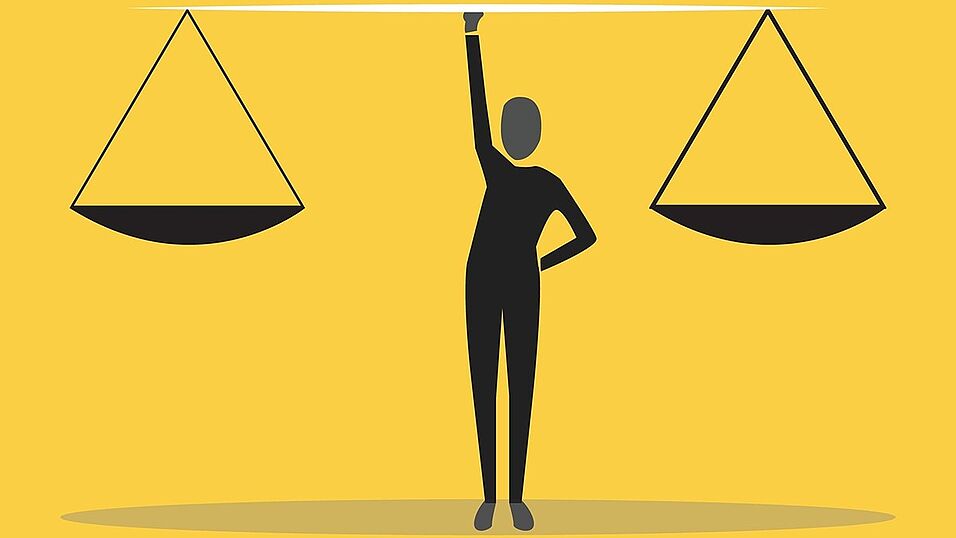Pascal Pichonnaz (ELI President; Professor, University of Fribourg) opened the webinar with a warm welcome to both speakers and attendees, setting the stage for discussions.
Project Co-Reporter, Elise Muir (Project Co-Reporter, Professor, KU Leuven) outlined the project’s objectives and its background. Muir went on to explain each of the three Principles under Part V of the Charter: Human dignity (Principle 24), Equality before the law (Principle 25) and Non-discrimination (Principle 26). Among other things, she noted that in drafting the above and indeed all the Principles, diverse national and supra-national contexts were considered, with particular attention being given to achieving not only formality but also substance.
Marja Ruotanen (Director General of Democracy and Human Dignity, Council of Europe) congratulated the Reporters for their ‘interlinked Principles’ and emphasised the Council of Europe’s and the ELI’s shared objectives on the rule of law and functioning democracies. Ruotanen addressed Principle 24 – Human dignity – noting the absence of a specific provision on human dignity in the European Convention of Human Rights. She further shared insights on the Council of Europe’s instruments that deal with human dignity, focusing on three conventions in which the Council’s efforts have centered: that on Preventing and Combating Violence against Women and Domestic Violence, on the Protection of Children against Sexual Exploitation and Sexual Abuse and on Action against Trafficking in Human Beings. Ruotanen concluded by saying that the examination of anti-discrimination measures is key to addressing equality.
Patrick Charlier (Chair of the European Network of Equality Bodies (Equinet) Executive Board) focused on Principle 25 – Equality before the law. He referred to its strong connection to Principle 26 on the principle of non-discrimination and stressed the vital role of equality bodies, considering them indispensable in establishing a ‘strong institutional architecture’, essential for upholding equality through advocacy and awareness raising. Furthermore, Charlier underscored the need for legislation and policy measures to uncover structural and pre-existing inequalities that hinder the effectiveness of equality measures, especially for marginalised groups. Among other things, he noted that structural inequalities are often invisible and therefore it is necessary to apply an intersectional perspective and that particular attention and resources should be allocated to the most vulnerable.
Katarzyna Sękowska-Kozłowska (Head of Poznań Human Rights Centre of the Institute of Law Studies, Polish Academy of Sciences; Assistant Professor) congratulated the Reporters on the Charter and in particular on the clarity of Part V of the Principles. She offered insights on Principle 26 – on Non-discrimination – initiating a discussion on the legal terminology employed, in particular with regard to the term ‘gender’. Among other things, Sękowska-Kozłowska further praised the Principles’ objective of achieving substantive equality and recommended a more proactive approach to achieve that end.
The interventions were followed by lively discussions.
Other webinars in the series:
- 11 March 2024 – Webinar I on Liberal Democracy
- 25 March 2024 – Webinar II on the Rule of Law
- 8 April 2024 – Webinar III on Judicial Independence
- 22 April 2024 – Webinar IV on Dignity and Equality
- 6 May 2024 – Webinar V on Checks and Balances: Accountability
- 16 May 2024 – Webinar VI on Protection of Fundamental Rights
- 17 June 2024 – Webinar VII on Constitutional Integrity
More information about the project is available here.

